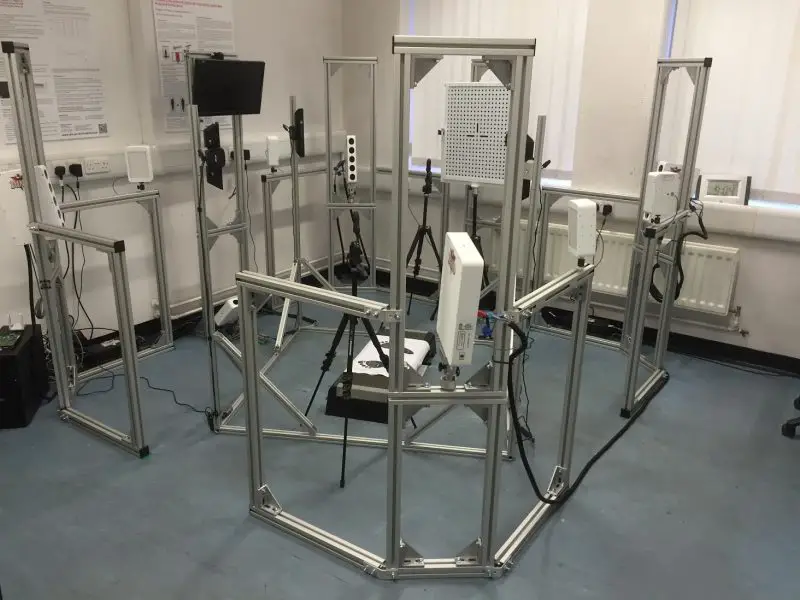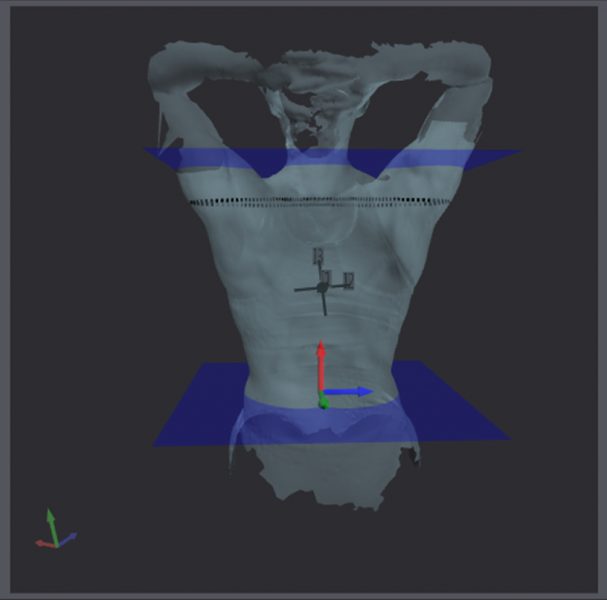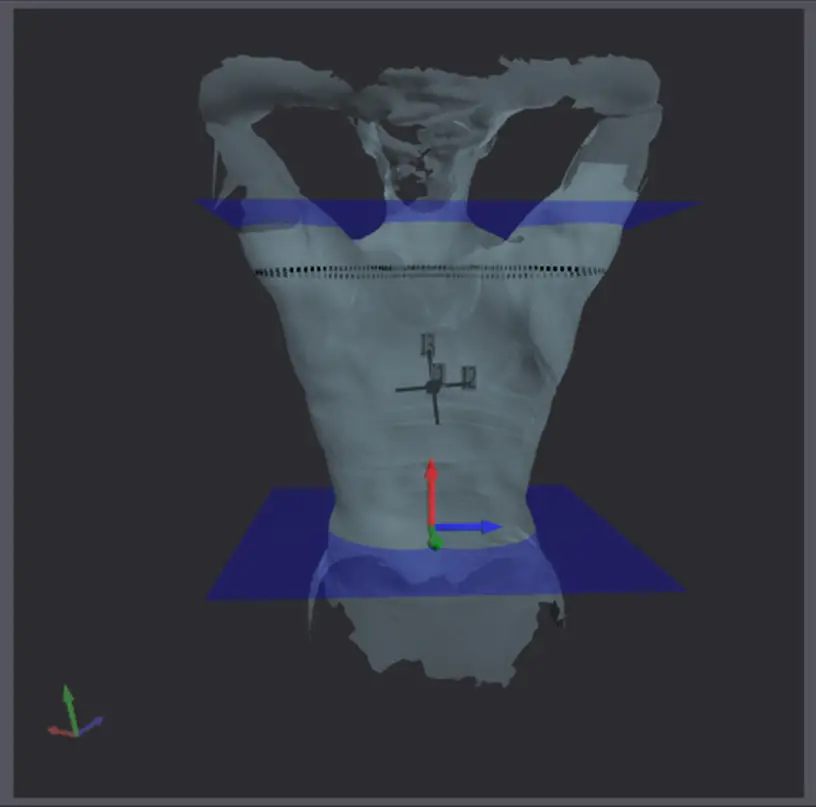The Centre for Sports Engineering Research at Sheffield Hallam University is looking for cyclists to take part in a series of studies.

The researchers are studying the body size and shape of cyclists using 3D scanners, with an analysis on performance, in a variety of studies. But you’ve got to be pretty hot to take part – they’re after riders of road, track, BMX or MTB who are currently competing at at least national level, and have been for a two or more years.
Other criteria? You need to be male, aged 18 – 45 years old and you need to be able to stand unaided (presumably when sober – Ed).

It is unpaid but you can keep a record of your data, Which might come in handy – or it might not, but you never know when you’ll need precise torso volume measurements…
Here’s more PhD Researcher Alice Bullas:
Cyclists come in all different shapes and sizes. However, some of these physical attributes we associate with cycling aren’t just stereotypes – they are physical attributes that can provide a competitive advantage. Identifying and monitoring these physical attributes, both those genetically inherited and acquired through training, can help us understand a cyclists’ performance, their response to training, and help us determine the selection criteria for talent identification of junior cyclists. This is because, although optimal body dimensions are not the only components necessary for a cyclist to excel in sport, many believe they are vital prerequisites for success.
However, recent literature has suggested that complex anthropometrics (body measures), such as area and volume, can identify changes in body size and shape that are not detectable with traditional anthropometric measures of lengths, breadths and girths. However, taking these more complex measures with manual techniques (tape measurement and calipers) is often unsuitable. Three dimensional (3D) surface imaging systems, also known as body scanners, are quick and accurate alternatives to manual techniques.
At Sheffield Hallam’s Centre of Sports Engineering Research we are exploring if ‘complex body measures’ can help us understand cycling performance any better than traditionally body measures. Using both a high precision commercially available 3D surface imaging system (3dMD) and a novel low cost system based on consumer depth cameras, we hope to collect body measures from high level recreational / semi-professional / elite male cyclists aged 18 – 45 years with a sprint (road/track), hill climb, endurance (road/track), BMX or mountain specialism.
We have two studies open for recruitment at the moment:
- Study 1 (30 minutes): This study aims to create detailed body size and shape profiles. 3D body scanners, will be used to collect 3D images of your body. From these images we will extract a wide array of body measures. Your measures will then be pooled with all the participants to produce an ‘average’ representation of your population group.
or
- Study 2 (1 hour 30 minutes): To measure how your cycling performance relates to body shape and size we will conduct a series of assessments:
1) Digital 3D body measurement (using 3D body scanner)
2) Body composition (using bioelectrical impedance)
3) Peak power assessment (x4 6 second sprints against randomly assigned loads)
These studies will be collecting data at Sheffield Hallam University’s Collegiate Campus from the 1st June to 1st August 2016. All participants will receive a copy of their data.
Who can participate?
We are looking for high level recreational / semi-professional / elite male cyclists aged 18 – 45 years with a sprint (road/track), hill climb, endurance (road/track), BMX or mountain specialism.
They need to be competing at regional (A/B), national (A/B) and or International (A/B) events, and have been doing so for a minimum of 2 years. And, must be able to stand unaided, and be free from and have never experienced any disease, illness or major injury / trauma that may have influenced physical growth / development.
What to do if you’re interested?
If you, or anyone you know might be interested or require further information please contact Alice Bullas (07536044310 / a.bullas@shu.ac.uk), or complete the booking / interest form (www.shucyclesize.youcanbook.me) and one of our researchers will contact you as soon as possible.
